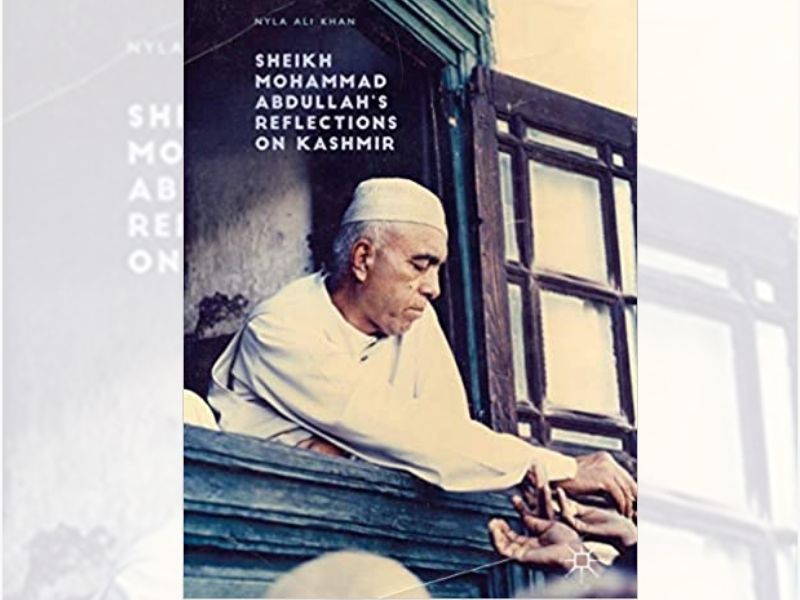Sheikh Mohammad Abdullah’s reflections on Kashmir – Nyla Ali Khan Palgrave Macmillan; Rs.9,000; Pages 215 Nyla Ali Khan’s Sheikh Mohammad Abdullah’s Reflections on Kashmir seeks to restore the centrality of Sheikh Abdullah in Kashmiri identity politics. This at a time when politics in Jammu & Kashmir has been radicalised much beyond his ideology and political values. The book seeks to portray him as a statesman much ahead of his time who had the ability to take bold decisions which were not popular, but were required at the time. The book taken as a whole is interesting because it not only presents us the ideas of Sheikh Abdullah — in the form of his letters, speeches and press conferences — but also gives us a clear insight into the author’s own understanding of the situation as it exists in Kashmir currently. She views the present situation as static in which separatist politics is moving without any ideological goal and purposive content. She finds fault with the way religion and obscurantism are pervasive in the valley; how transformative and reformist opportunities have been missed, leaving the youth high and dry without any hope for the future. The book reflects the author’s frustration with the violence, purposelessness, and senselessness that politics in J&K represents. While referring to the alienation of Kashmir because of Delhi’s nationalist response, her attention remains on the youth of Kashmir who are central to the protest politics and full of anger and resentment. Sympathetic to their despair, she notes this is a generation that has only known conflict, political turmoil and socio-economic instability. Because of their sorry situation, she invokes Sheikh Abdullah and calls for an ideological re-imagination and reinventing of meaningful and purposive politics. She recalls the capacity of Sheikh Mohammad Abdullah’s to rise above politics and opt for flexibility and accommodation when the occasion demanded. She calls for revival of Sheikh’s politics. It’s all very well, she notes, to raise slogans of self-determination, autonomy and self-rule, but it’s time to think beyond sloganeering, about the type of social and political fabric needed for Kashmiri youth. She calls for a political movement that pays attention to the ideals of peace, political liberty, socio-economic reconstruction, egalitarian democratisation, good governance and resuscitation of democratic institutions. Abdullah believed only a friendly environment in Kashmir would be conducive to peace and development. Therefore, he informed Kashmiris that, “while struggling for our rights of self-determination, it becomes essential for Kashmir that we should strive hard to secure friendship between India and Pakistan”. Since it was impossible for Jammu & Kashmir to progress without an Indo-Pak detente, extricating itself from the Indo-Pak conflict was very important for Kashmir. This, he told Kashmiris, could be achieved “only if our efforts are directed towards creating peace and harmony between India and Pakistan. Because in their friendship alone lies our salvation”. Solution of the Kashmir question, as many of Sheikh Mohammad Abdullah’s speeches stressed, also required taking cognizance of the internal structure of the state. He repeatedly emphasised…
Illuminating biography: Sheikh Mohammad Abdullah’s reflections on Kashmir
